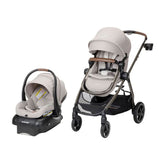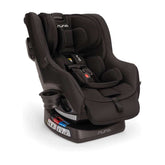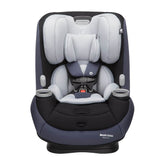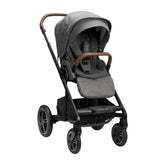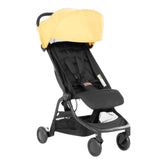How, When, and Why to Burp Your Newborn Baby

Updated 19 Dec 2024
Burps aren’t typically thought of as a welcome noise – except when they come from a newborn baby. A nice, healthy burp means your infant has released a bubble of trapped air that could make everyone miserable a little later. Until they get a bit older, most newborn babies will need a bit of help getting those burps out. Regular burping is a good habit to incorporate into your newborn’s feeding regimen, whether your baby is nursing or bottle feeding. Let’s take a look at why you should burp your baby and how to get a newborn to burp.
Is It Necessary to Burp a Newborn? Why Newborns Need to Be Burped
When babies swallow too much air, it can become trapped in their stomachs. This can happen for a number of reasons: feeding from a bottle, nursing from a parent with an extremely active letdown response, or even having an especially powerful crying session. When air is trapped in an infant’s belly, it can cause discomfort and, ultimately, fussing or crying. It can also make your infant feel fuller than they actually are. Burping helps get rid of this excess air. Some babies will even resume eating since releasing the trapped air makes room for more formula or milk.
The Mushie Organic Cotton Muslin Burp Cloth, designed for parents of newborns, provides a soft and protective solution during feeding times. Made from 100% organic cotton muslin, these cloths are pre-washed to ensure they are gentle on a baby’s delicate skin. With its breathable and absorbent design, the cloths effectively shield clothing from spit-ups, keeping both the baby and parent comfortable. The durable material ensures long-lasting use, making it an essential addition to any parent’s baby-care routine.

Mushie Organic Cotton Muslin Burp Cloth
What Is the Fastest Way to Burp a Newborn? Positions for Burping Your Newborn
Though babies occasionally burp without any assistance, they’ll often need your help getting it out. There are several ways to make this happen. Grab a burp cloth or bib to hold under they baby’s chin or to cover clothing in case something other than air comes up. Then try one of the following burping positions:
Over the shoulder
Place your infant in an upright position with their chin over your shoulder. Pat or rub their back to expel trapped air. Don’t bounce.
Sitting on the lap
Position your baby in a seated position on your lap with their back toward you. Lean your baby slightly forward. Use one hand to support their chest and head under their jaw and the other hand to rub and pat their back.
Lying on the lap
Sit with both feet on the ground. Lay your infant tummy-down across the top of your lap, one leg under their stomach and the other under their head. Turn your baby’s head sideways. Use one hand to hold your infant and the other to gently pat or rub their back in a circular motion.

Is It OK to Leave Baby Without Burping? When to Burp Your Newborn
Every baby is different, and some need burping more frequently than others. For instance, the rapid flow of breast milk from a mom with a strong let-down reflex may cause a nursing infant to swallow more air. Certain types of bottles may allow more air intake than others. In these cases, you’ll need to burp your infant more frequently. There are a few simple “rules of thumb” you can follow, though.
Burping during a feeding
If your baby stops eating or starts getting cranky in the middle of a feeding, it’s probably a good time to try burping. For nursing parents, a good time to burp your little one is when you are switching breasts. If your baby usually only feeds on one breast, burp during the typical “halfway point.” So, if you know your infant’s usual nursing session lasts around 20 minutes, burp at the 10-minute mark.
Burping after a feeding
Whether you’re nursing or bottle feeding, burping after a feeding session is important. If possible, avoid waiting until your baby is almost asleep. Watch them eat, and as they begin to slow their active swallowing and sucking, gently move them into position for a burp.
Other helpful times
If your baby keeps falling asleep before finishing a full feeding session, burping can help rouse them a bit so that they feed a little longer. A baby who’s been especially fussy or has colic may take in a lot of extra air while crying and need a good burp as well.

More Tips for Burping Your Newborn Baby
If you’re not getting any results after a few minutes of burping, try shifting their position. It won’t work every time. Babies may not need to burp every single time you try. Breastfed babies tend to burp even less than bottle-fed babies. You can keep feeding your baby, lay them down, or just snuggle them for a while. If they start showing signs of discomfort, you can try burping again.
Burping is a great way to include other caregivers in the feeding process, especially if you’re nursing. Letting them hold and burp the baby during and after feedings helps build nurturing bonds with the baby. It also helps them feel like an integral member of the “breastfeeding team” and gives the nursing parent some additional support.
What Can I Do If My Newborn Is Not Burping? When to Call the Doctor
A “wet burp,” air accompanied by a little formula or breast milk, is perfectly normal. This type of spit-up is usually small and comes out of your newborn’s mouth slowly. On the other hand, if formula or breast milk is forcefully expelled from your baby’s mouth, that’s vomiting. While vomiting occasionally is not typically cause for concern, vomiting after more than one feeding or accompanied by fever or diarrhea requires medical attention. Call your pediatrician immediately if there is ever blood in your baby's vomit.
The Takeaway on Newborn Burping
Newborns have immature digestive systems, and sometimes swallow too much air during a feeding or crying session. Too much trapped air can make them uncomfortable. Burping helps! Try different positions to find the one that works best for you and your baby. Your baby may not burp every time, but as long as they’re comfortable and gaining weight appropriately, burping isn’t always necessary (and sometimes, they may just release it out the other end).

